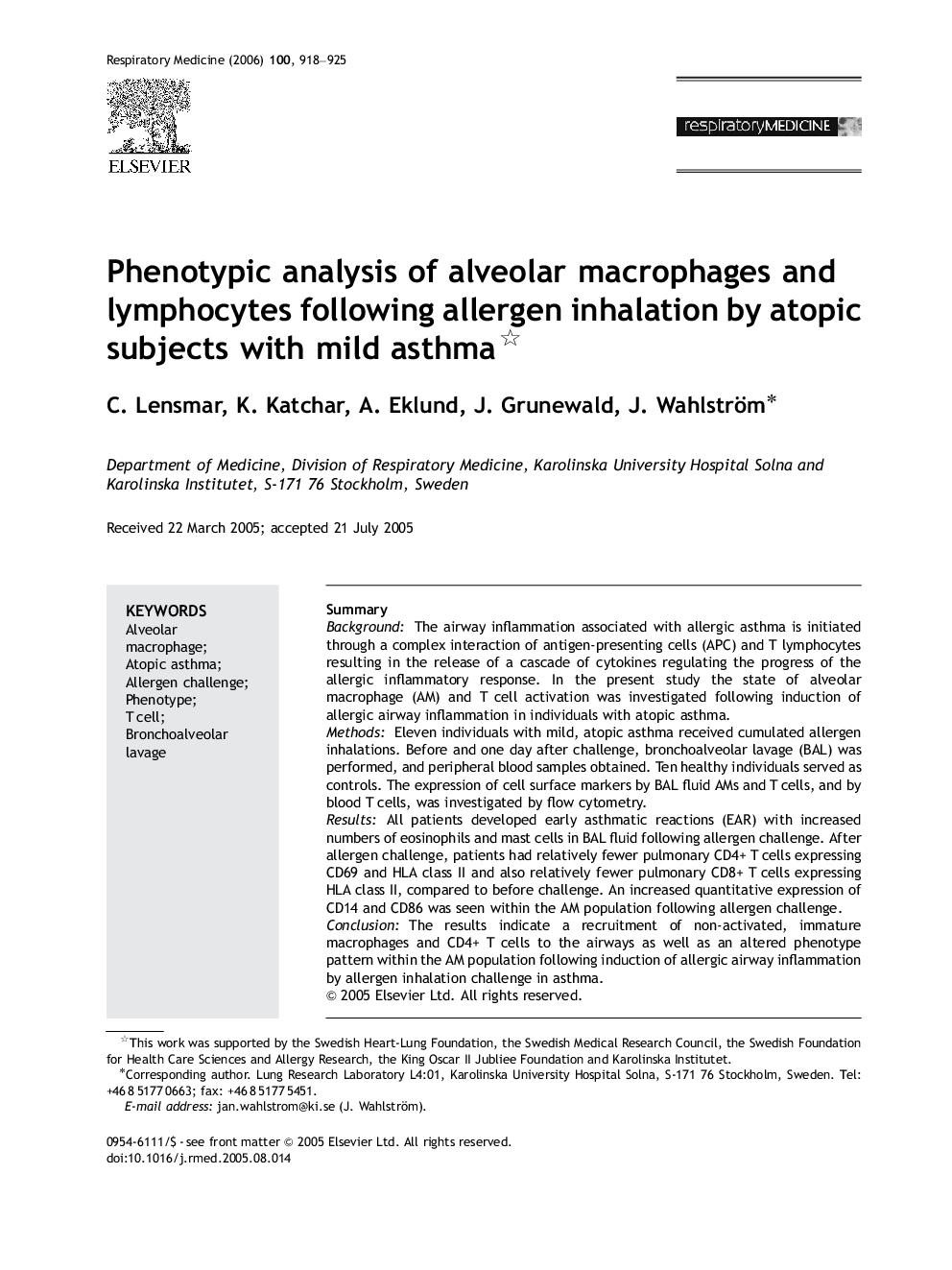| Article ID | Journal | Published Year | Pages | File Type |
|---|---|---|---|---|
| 4212375 | Respiratory Medicine | 2006 | 8 Pages |
SummaryBackgroundThe airway inflammation associated with allergic asthma is initiated through a complex interaction of antigen-presenting cells (APC) and T lymphocytes resulting in the release of a cascade of cytokines regulating the progress of the allergic inflammatory response. In the present study the state of alveolar macrophage (AM) and T cell activation was investigated following induction of allergic airway inflammation in individuals with atopic asthma.MethodsEleven individuals with mild, atopic asthma received cumulated allergen inhalations. Before and one day after challenge, bronchoalveolar lavage (BAL) was performed, and peripheral blood samples obtained. Ten healthy individuals served as controls. The expression of cell surface markers by BAL fluid AMs and T cells, and by blood T cells, was investigated by flow cytometry.ResultsAll patients developed early asthmatic reactions (EAR) with increased numbers of eosinophils and mast cells in BAL fluid following allergen challenge. After allergen challenge, patients had relatively fewer pulmonary CD4+ T cells expressing CD69 and HLA class II and also relatively fewer pulmonary CD8+ T cells expressing HLA class II, compared to before challenge. An increased quantitative expression of CD14 and CD86 was seen within the AM population following allergen challenge.ConclusionThe results indicate a recruitment of non-activated, immature macrophages and CD4+ T cells to the airways as well as an altered phenotype pattern within the AM population following induction of allergic airway inflammation by allergen inhalation challenge in asthma.
